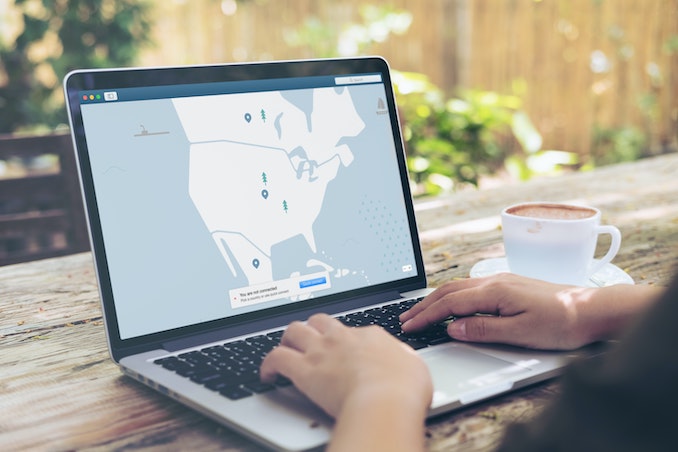A VPN or virtual private network is a tool you should have to access content and keep your personal data safe and secure on public Wi-Fi as well as on your home network. This article will go over how to stop third parties from tracking you and let you enjoy some of your favourite content while traveling to other countries.

What Is The Function Of A VPN?
The main function of a VPN is to hide your online activities and used to protect you from hackers and snoops on public networks. It’s also useful to hide your IP address, browsing on the internet, and personal data on Wi-Fi networks, even when you are at home.
With all the high-tech in our lives, it’s more and more difficult to protect your privacy and remain risk-free. Hackers are always looking to steal your personal information for malicious reasons and someone might be watching every move you make online while browsing the internet.
A VPN will help you browse safely and securely by encrypting your connection and hiding your location.
Should I Have A VPN At Home?
A VPN is not as important at home as it is in public because in most cases, your home network has security protections such as a username and password to sign in. There are people who still use a VPN at home to prevent any online tracking.
If you are using public Wi-Fi it’s not secured so hackers can easily stop anything you send or receive. Even though most people believe whatever they are sending out is not interesting at all, it can still be important information like your bank account, credit card number, or logins. Hackers will cast a wide net so if you use free internet at your local library or at the airport, you are running a risk.
You have probably taken all the necessary steps to protect your home Wi-Fi router correctly, including changing the default username and password.
A VPN can protect you from other privacy threats. Your online activities can be tracked any time you visit a site or open an online account. There are many companies who collect information about you in order to improve their products or target you with advertising. A VPN for your home network will add an extra layer of protection and makes it harder for someone to see what you are doing or find your IP address.
Even with a VPN, sites can still track what you are doing on their platforms. If you remain logged into their site, they can find out what you do elsewhere. This is how companies like Google use your data to learn more about you than you probably even realize.
Keep in mind, that your internet service provider (ISP) has access to everything you do online. Thanks to a Senate vote, your ISP no longer needs your permission to track you everywhere on the internet and sell your information.
Also, if you download or stream a lot, your ISP can throttle your connection speed. Hiding your internet activities in a private tunnel will make your ISP incapable of seeing what you are up to.
Having a VPN at home is very popular for people who want access to streaming content. VPNs are also great for getting better online shopping deals and cheaper flights because prices are often changed depending on your location.
Please Note – while VPNs are legal in most places, doing something illegal using VPN is not legal. Before setting up a VPN, you must understand the terms and uses to avoid any activities that might be construed as a violation.
The Benefits of a VPN
Videos or other content that is available on your favorite streaming service will vary from one place to another. A VPN will let you connect to a US server even if you live elsewhere. Your streaming service will probably think that’s your real location.
Another huge benefit, if you spend a lot of time online at your local coffee shop, you are probably connecting with a public Wi-Fi. Hackers love these places because they will see all the information you send or receive including your passwords and other personal data. You can jump through hoops trying to get a better password to no avail. Getting a VPN for windows will keep you safe and hide all your sensitive data.
A VPN will also protect your banking information from prying eyes. Even though banks do have high security, they cannot protect you from everything out there.
A VPN will hide your identity, protect your data, change your IP address, and the list goes on. Always go with a VPN server that does not keep logs about what you do because your privacy is your number one concern. You need a server that is not adding to the mess you go through online by tracking you as well.
